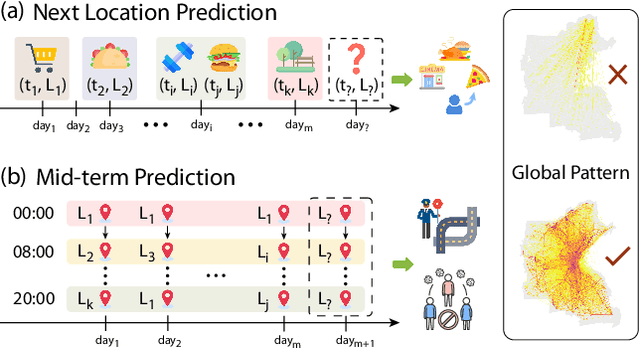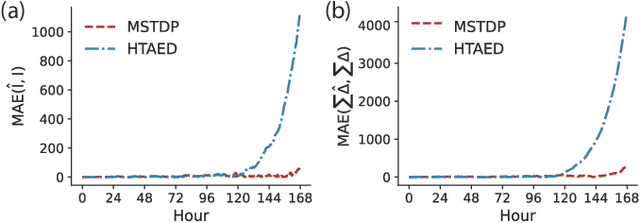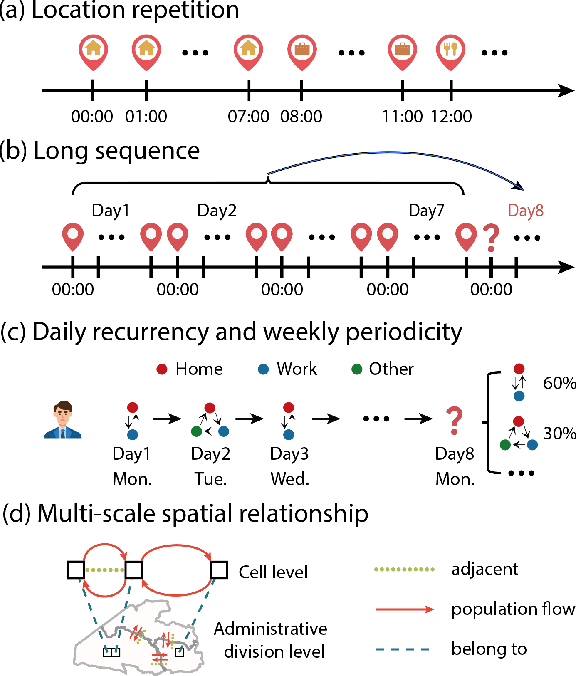Where to Go Next Day: Multi-scale Spatial-Temporal Decoupled Model for Mid-term Human Mobility Prediction
Paper and Code
Jan 11, 2025



Predicting individual mobility patterns is crucial across various applications. While current methods mainly focus on predicting the next location for personalized services like recommendations, they often fall short in supporting broader applications such as traffic management and epidemic control, which require longer period forecasts of human mobility. This study addresses mid-term mobility prediction, aiming to capture daily travel patterns and forecast trajectories for the upcoming day or week. We propose a novel Multi-scale Spatial-Temporal Decoupled Predictor (MSTDP) designed to efficiently extract spatial and temporal information by decoupling daily trajectories into distinct location-duration chains. Our approach employs a hierarchical encoder to model multi-scale temporal patterns, including daily recurrence and weekly periodicity, and utilizes a transformer-based decoder to globally attend to predicted information in the location or duration chain. Additionally, we introduce a spatial heterogeneous graph learner to capture multi-scale spatial relationships, enhancing semantic-rich representations. Extensive experiments, including statistical physics analysis, are conducted on large-scale mobile phone records in five cities (Boston, Los Angeles, SF Bay Area, Shanghai, and Tokyo), to demonstrate MSTDP's advantages. Applied to epidemic modeling in Boston, MSTDP significantly outperforms the best-performing baseline, achieving a remarkable 62.8% reduction in MAE for cumulative new cases.
 Add to Chrome
Add to Chrome Add to Firefox
Add to Firefox Add to Edge
Add to Edge